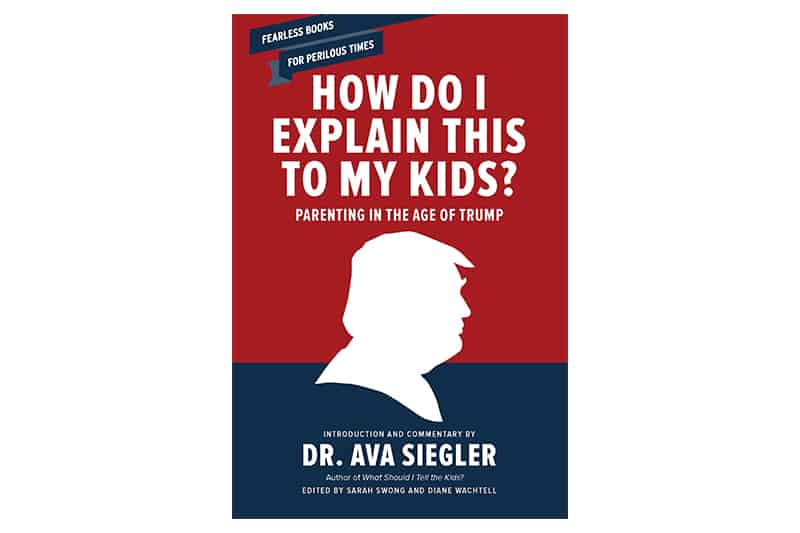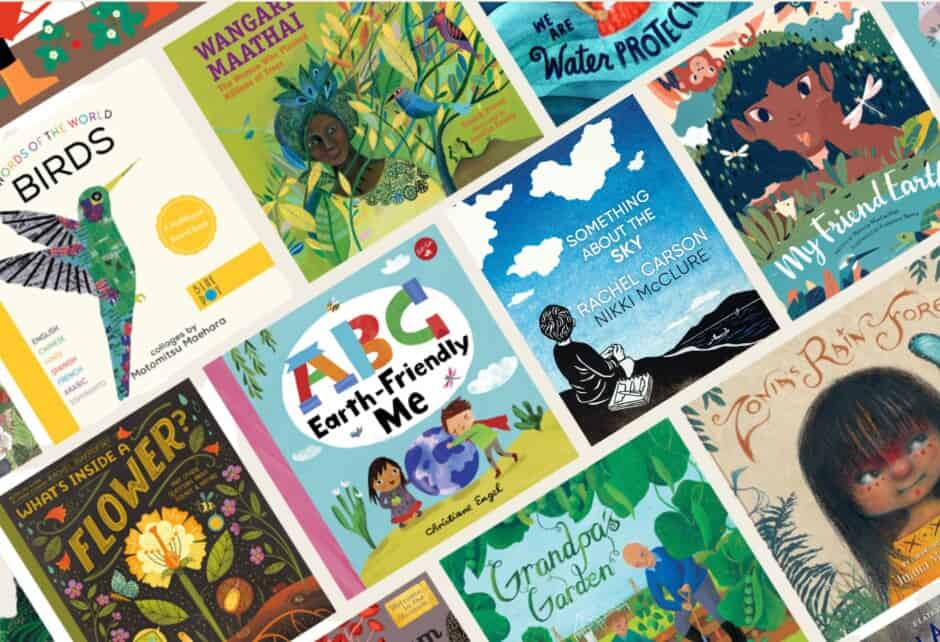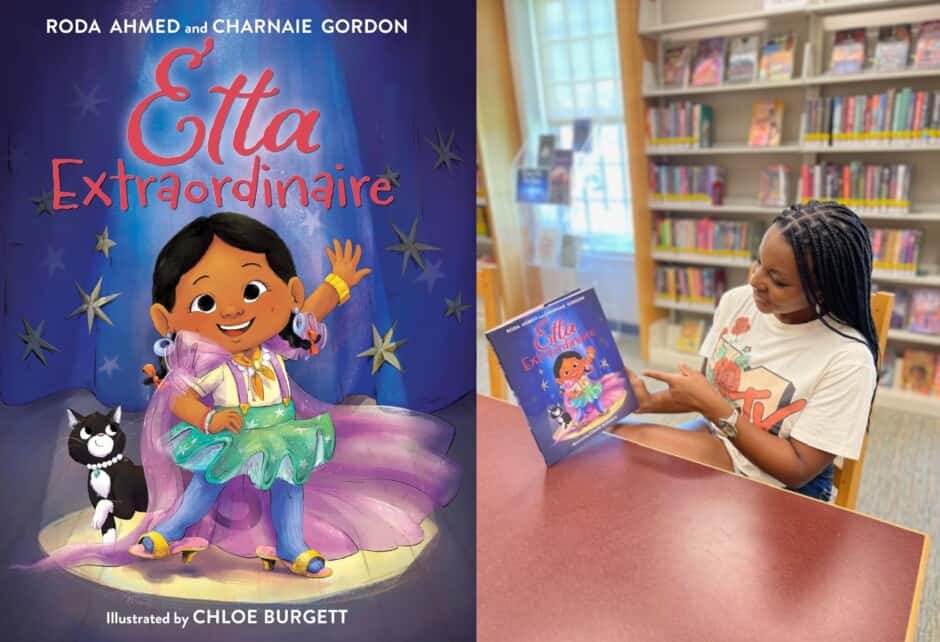
Book Review: How Do I Explain This To My Kids?
Written by Kate MacLean
Photography by PHOTO VIA AMAZON
In Dr. Ava Siegler’s introduction to the collection of essays, How do I Explain This to My Kids?, she cuts quickly to the point on many a parent mind this past year: “Donald Trump’s performance during his campaign and presidency has seemingly validated a long list of behaviors we strive to get our children to recognize and reject, from rudeness, prejudice, and bullying to dishonesty, greed, and shamelessness.” The problem, she contends, is that the man who holds the most visible seat in the country and who our children are chronically exposed to via radio, television, and adult conversation is a bad moral example. Through Twitter, news conferences, press releases, rallies, and speeches, it is well documented that Trump is a liar, a bully, a misogynist, and a myriad other undesirable traits. He shows a continual disregard for truth and morality. Because our children have such regular exposure to the man, there is due concern that Trump’s behavior could impart the wrong message, for it is his behavior that was mightily rewarded. And, while many parents like to fantasize about their children someday becoming President, most parents would do well to fantasize about words like kind, noble, just, and even to describe these future presidents.
But, the spectre of Trump and the danger he poses to children does not end with poor moral character. In fact, the spectre of Trump and his policies have very dire and real consequences for many of our most vulnerable children. How do I Explain This to My Kids? tackles—through essays—the most heartbreaking conversations parents have had to have with their worried, scared, nervous, innocent children.
The personal essays run the gamut of parents of minority children—of black boys, Muslim girls, Jewish teenagers, and many others. The theme preached in nearly every one is this: the children are scared, and now we must find the courage and words to tell them the truth. As essayist Mira Jacob recounts in the book a conversation with her young Indian son:
“You had some more questions.
‘Does Donald Trump hate all brown people?’
‘Hate is a strong word.’
‘Does he not like brown people?’
‘Some.’
‘Like Mexicans and Muslims?’
‘Yes.’
‘What about brown boys like me? Does he not like brown boys like me?’
‘What’s not to like about you?’ I asked. Then, I grabbed you and tickled you and sank my face into your stomach, where you would not see my fear.”
Each parent has his or her own way of navigating this; some go for the direct, others find age-appropriate ways of imparting the new realities and uncertainties. Every parent reluctantly arrives to the same conclusion of a necessary loss of innocence. As Topher Sanders eloquently ended in his essay, “We don’t have a choice but to talk to our son about Ferguson, Eric Garner, workplace frictions, Baltimore, Charlotte, Alton Sterling, and on and on. And, yet I mourn each of those conversations. With each degree of awareness comes a corresponding loss—of silliness, of whimsy, of childhood.”
While the lion’s share of this small book is devoted to personal essays, the coda serves as an advice manual from Dr. Siegler. It lays out to the reader a how-to when talking about Trump—and his policies—with their children, and goes beyond to advise how minority children can protect themselves in public. The segment is broken into chapters delineated by race, gender, and age (sadly LGBTQ, handicapped, and chronically ill youth are omitted). After the often moving and deeply personal essays of the fore, this ending seems a bit jarring; an afterthought like the book club discussion questions at the end of an Ann Patchett novel. But, instead of an afterward to be left unread, it is a necessary (if meager) contribution to the conversation many parents are having with their children as they face a new, uncertain, and terrifying reality under Trump. It is the privilege of the parents of white children (especially of white boys) to think this segment frivolous. Much like it is the privilege of these same parents to think the only real trouble with Trump is his poor character. The physical danger Trump presents to these families is a reality that many have already needed to face. While the how-to is woefully incomplete, it offers some basic starting points for all parents. The most widely applicable we collated for you here.
As a broad beginning on how to talk to your kids about Trump, Dr. Siegler offers:
For younger children
Limit your child’s exposure to Trump in all media forms. They will likely not understand the context of these sound bites, but they can pick up easily on his—and your—negative emotions.
For older children
They are young enough that they can be negatively impacted by his proclivity for repetition and simplifications. Be intentional with your exposure and conversation here.
For teenagers
Engage your children in your discussions. Encourage and demonstrate activism. Get involved for change together. Any child over the age of 15 will be able to vote in the next election. Help them to understand this great power and privilege.
Of course, that is just the very beginning and this book is a good starting point for any concerned parent. We are curious to hear how you and your family have tackled the Trump Talk. Let us use our collective parent brain here to help others who might be struggling to find the right words.
Share this story




